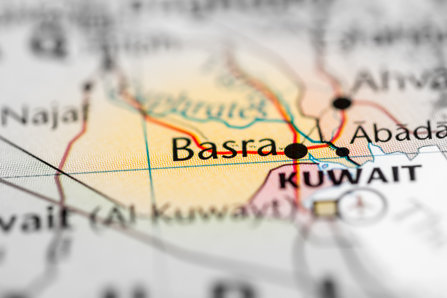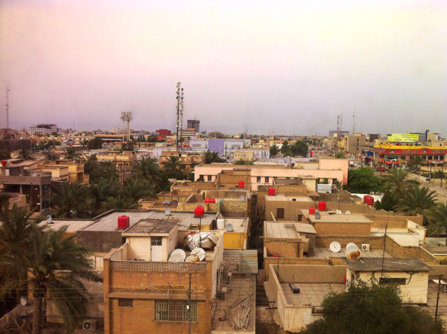A Growing Drug Problem Overseas—What Can We Learn From It?

When we consider our drug problem here on U.S. soil, it’s difficult to imagine a drug crisis like this occurring somewhere else. The U.S. drug addiction epidemic has expanded and grown over the last twenty years, developing into a health crisis, unlike anything we’ve ever seen before. The national public health emergency that is the American drug problem revolves mostly around a plague of opioid addiction. But other drug problems have also grown and evolved out of the opioid crisis.
Case in point: The United States is struggling with a not-inconsiderable methamphetamine addiction epidemic. The meth crisis has developed mainly in rural and suburban areas, striking, in particular, the regions of the U.S. that traditionally do not experience significant drug problems.
While we’ve been so focused on our drug problem here at home, it might come as a surprise that another country is struggling with an almost identical drug problem. Take a minute to look up Basra, Iraq on Google maps. This is a city and province in southeastern Iraq that, surprisingly enough, has a crystal meth addiction epidemic almost identical to the one in the United States.
Class Warfare, Poor Living Conditions, and Lack of Treatment Options in Basra
In 2017, the Iraqi Parliament recognized Basra as Iraq’s economic capital. According to Reuters, Basra province produces enough oil to contribute ninety percent of state revenues. Yet, oddly enough, the city of Basra is stricken with poor living conditions, classism, insufficient clean water, and not enough electricity to even power air conditioners in the scorching summer heat. In spite of the revenue generated by the region, unemployment runs rampant, and a small percentage of the Basra population lives in opulence while the vast majority of its citizenry suffers.
These unfair living conditions and socioeconomic inequality have been going on for some years. But just in the past year, an entirely new problem has cropped up in Basra. The local populace was exposed to crystal meth in a very big way—meth that was likely trafficked from Afghanistan or Pakistan.
Much as it has occurred in the United States, the crystal meth addiction craze grew so fast in Basra that it overwhelmed already-strained police forces. Prisons almost immediately became overcrowded, and growing protests from the citizenry over poor municipal services only made matters more contentious.

According to Reuters reporters, Basra appears to be a city of contradictions. For all intents and purposes, Basra should be a prosperous city, as it is economically well-off and is the source of the vast majority of Iraq’s oil production. In some districts of the province, oil magnates live in almost unbelievable opulence while in the prisons of Basra, thousands of men are crammed like sardines into overstuffed holding cells. Their crime? Addiction to crystal methamphetamine.
And why are so many people in Basra using drugs? The Reuters article cited above took a quote from Major Shaker Aziz, a senior member of the Basra police narcotics unit: “Drugs spread because the youth are lost; they have no money; they are sick of life. It’s escapism. Ninety percent of inmates are convicted on drug charges.”
There’s a lot of truth in those words. The major’s commentary reminds us of many American inner cities, regions where the oppressed and the impoverished of American ghettos and poor neighborhoods turn to drugs as coping mechanisms, ways of escaping from the harsh brutality of daily life.
Another contradiction in Basra is that, even with all of the wealth of the region, treatment centers for the addicted citizenry have not been forthcoming. Again, this is a painstaking analogy to the United States. We too have a lack of adequate and reliable drug treatment. In fact, in the United States—one of the wealthiest countries in the world—only about one in ten addicts is ever able to receive qualified drug treatment, according to a Surgeon General report.
Basra was once known as the Venice of the East. But recent years have seen a growing gap in wealth disparity in Basra. As the classic line goes that so many Americans complain of: “The rich are getting richer, and the poor are getting poorer.”
Except in Basra, one could hazard that the conditions there are even worse than even the most oppressed of American regions. Last summer, for example, even before the crystal meth epidemic took hold, thousands of Iraqi Basrans took to the streets in protest, burning government buildings and police headquarters to the ground and suffering terribly for it.
And now that methamphetamine has touched down in Basra, conditions have become even worse. By March of 2019, Basra police officers seized more methamphetamine from drug busts than the entire 2018 haul. About 50 to 60 Basran residents have been arrested for drug possession each week so far in 2019, compared to only about 20 arrests per week in 2018. The majority of those arrested are men under the age of 25. About 97 percent of them are unemployed.
In case after case, poor socio-economic conditions, classism, poor municipal services, and harsh living conditions and unemployment have led the Basran youth to use drugs. And in case after case, we can see similar analogies to the Basran addiction epidemic right here on American soil. What can we learn from what this province, literally a world away from our own home, is going through?
The Common Denominator of Drug Addiction
Anyone can, at any time, fall prey to a drug habit. Drug addiction does not discriminate. Drug addiction can develop in anyone, no matter their social stature or condition in life. However, we cannot deny that certain factors predispose people to use drugs.
Drug use is seen as a coping mechanism, a way to get out of or escape the cruelties of life. People turn to drugs when they lose a job, when they can’t provide for their families, when they seem to have no future. They turn to drugs when their living conditions are horrible, when they face persecution and daily abuse, when they are not given even a flicker of light in the darkness that is their lives.
It’s reasons like the above that many Americans have also turned to drugs in the past. Now, thanks to the Reuters report and also thanks to a New York Times article, we can see that there are other regions of the world that share in struggles quite like ours.
What can we learn from the worsening living conditions, the addiction crisis, and the hardships of Basra province? The real question is, what can we re-learn? What the Basrans are going through is very similar to what we in the States face every day: growing socioeconomic disparity, a slowly receding average life expectancy, wages that don’t keep up with inflation, healthcare often out of reach, and voices that don’t seem to be heard in the churning cauldron of American politics.
We need to take matters into our own hands. We have to commit to improving our communities, whether we get outside help or not. If we know people who are addicted to drugs and alcohol, we have to encourage them to get help at residential treatment centers, and we have to assist them in getting that help.
For the rest of us who are not using drugs, we need to commit to getting the word out there. We have to educate our fellows about the hardships of drug addiction. We have to talk about how drug use is never an “escape.” We have to let people know that seeking drugs to cope with the struggles of daily life only inevitably makes those struggles more severe.
We can improve the conditions in which we live. But we have to demand change from our governments. And we have to create change in the communities where we live. The American dream is not to seek wealth, forgetting all but self, but rather it is to ensure that we can all live happy and comfortable lives, free of drug addiction, alcohol addiction, and the hardships of poverty and social persecution.
Sources:
- https://www.reuters.com/article/us-iraq-drugs/crystal-meth-and-crowded-jails-problems-mount-in-iraqi-oil-city-idUSKCN1RL13V
- https://addiction.surgeongeneral.gov/executive-summary
- https://www.nytimes.com/2019/09/14/world/middleeast/iraq-drug-addiction-meth.html?searchResultPosition=1
Reviewed by Claire Pinelli, ICAADC, CCS, LADC, RAS, MCAP
